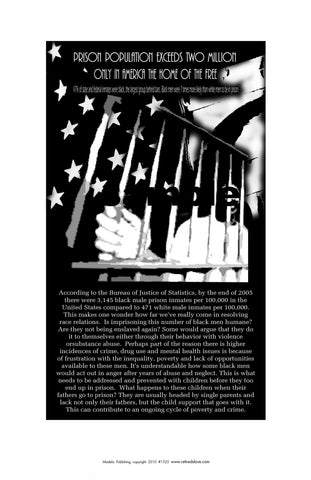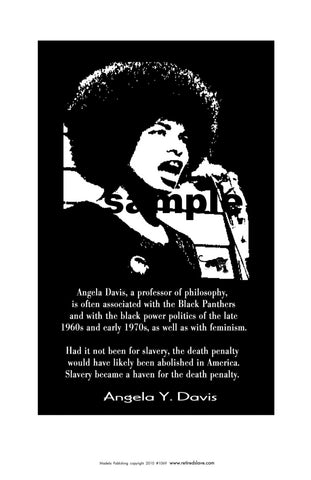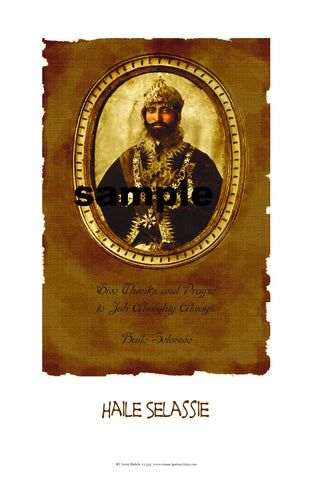Kwanzaa #1500
$ 8.00
Caption from poster__
Kwanzaa
Nguzo Saba - The Seven Principles
Unity
To strive for and maintain unity in the
family, community, nation, and race.
Self-Determination
To define ourselves, name ourselves, create
for ourselves and speak for ourselves.
Collective Work and Responsibility
To build and maintain our community
together and make our brother's and
sister's problems our problems
and to solve them together.
Co-operative Economics
To build and maintain our
own stores, shops and
other businesses and to
profit from them together.
Purpose
To make our collective vocation
the building and developing of our
community in order to restore our people
to their traditional greatness.
Creativity
To do always as much as we can,
in the way we can, in order to leave
our community more beautiful and
beneficial than we inherited it.
Faith
To believe with all our heart in our
people, our parents, our teachers,
our leaders and the righteousness
and victory of our struggle.
Kwanzaa (or Kwaanza) is a week-long Pan-African festival primarily honoring African-American heritage.] It is observed from December 26 to January 1 each year, almost exclusively in the United States of America. Kwanzaa consists of seven days of celebration, featuring activities such as candle-lighting and pouring of libations, and culminating in a feast and gift-giving. It was created by Ron Karenga, and first celebrated from December 26, 1966, to January 1, 1967. Karenga calls Kwanzaa the African American branch of "first fruits" celebrations of classical African cultures. Principles of Kwanzaa Kwanzaa celebrates what its founder called "The Seven Principles of Kwanzaa", or Nguzo Saba (originally Nguzu Saba - "The Seven Principles of Blackness"), which Karenga said "is a communitarian African philosophy" consisting of Karenga's distillation of what he deemed "the best of African thought and practice in constant exchange with the world." These seven principles comprise Kawaida, a Swahili term for tradition and reason that Karenga used to refer to his synthesized system of belief. Each of the seven days of Kwanzaa is dedicated to one of the following principles, which are explained by Karenga as follows: Umoja (Unity) To strive for and maintain unity in the family, community, nation and race. Kujichagulia (Self-Determination) To define ourselves, name ourselves, create for ourselves and speak for ourselves. Ujima (Collective Work and Responsibility) To build and maintain our community together and make our brothers' and sisters' problems our problems and to solve them together. Ujamaa (Cooperative Economics) To build and maintain our own stores, shops and other businesses and to profit from them together. Nia (Purpose) To make our collective vocation the building and developing of our community in order to restore our people to their traditional greatness. Kuumba (Creativity) To do always as much as we can, in the way we can, in order to leave our community more beautiful and beneficial than we inherited it. Imani (Faith) To believe with all our heart in our people, our parents, our teachers, our leaders and the righteousness and victory of our struggle. These principles correspond to Karenga's notion that "the sevenfold path of blackness is think black, talk black, act black, create black, buy black, vote black, and live black."




